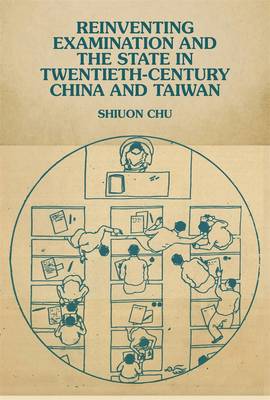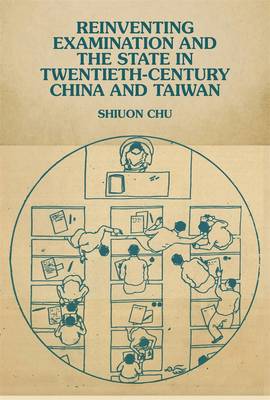
- Retrait gratuit dans votre magasin Club
- 7.000.000 titres dans notre catalogue
- Payer en toute sécurité
- Toujours un magasin près de chez vous
- Retrait gratuit dans votre magasin Club
- 7.000.0000 titres dans notre catalogue
- Payer en toute sécurité
- Toujours un magasin près de chez vous
Reinventing Examination and the State in Twentieth-Century China and Taiwan
Shiuon Chu
64,45 €
+ 128 points
Description
After the abolition of the imperial examination system in 1905, what made examinations a trusted method of selection in China and Taiwan? Reinventing Examination and the State traces the ideological evolution of civil service and state-organized educational examinations in twentieth-century China and Taiwan. In the making of the modern Chinese civil service, the concept of examination as a basic power of government was institutionalized as the Examination Yuan in the 1930s and was written into the 1947 Constitution of the Republic of China, which remains in effect in Taiwan today. Meanwhile, two models of educational examination, one of gatekeeping school graduates and the other of mobilizing human resources, emerged during WWII and constituted a repertoire of educational policies shared by the Republic of China and the People's Republic of China after the 1949 divide. The authority of examination, Shiuon Chu argues, was by no means a natural development from the long history of imperial China but was in fact contingent on specific political maneuverings over the course of the twentieth century. Unlike the imperial examinations, which heavily rewarded participants with titles and fame, modern examinations shaped new concepts about the responsibility of the individual vis-à-vis the state, and this shift contributed to the resilience of the state during times of significant political and social change.
Spécifications
Parties prenantes
- Auteur(s) :
- Editeur:
Contenu
- Nombre de pages :
- 300
- Langue:
- Anglais
- Collection :
Caractéristiques
- EAN:
- 9780674302570
- Date de parution :
- 30-12-25
- Format:
- Livre relié
- Format numérique:
- Genaaid
- Dimensions :
- 152 mm x 229 mm

Les avis
Nous publions uniquement les avis qui respectent les conditions requises. Consultez nos conditions pour les avis.






